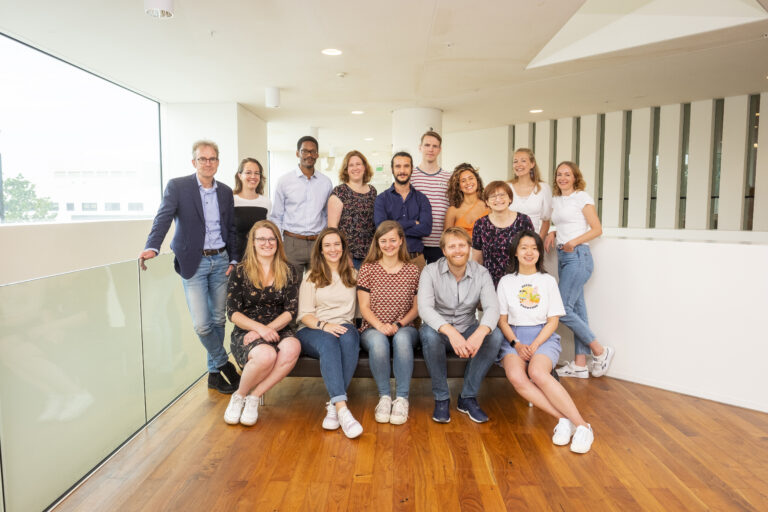Social Epidemiology
Population health varies by social determinants. Understanding and improving population health calls for an inclusion of the social conditions in which people are born, grow, live, work and age in public health research, with a focus on those in the most disadvantaged conditions.
Unfavourable health patterns in the most socioeconomically disadvantaged groups are widely observed. Yet, the variation in the magnitude of health inequalities over time, across countries, between and within cities and within socioeconomic groups allow for social-epidemiological research aimed at improving health in the most disadvantaged groups in societies. A unique database developed in the Lifepath project allows studying trends and underlying pathways in the magnitude of socioeconomic inequalities in health in many European countries over decades. The variation in physical and social living conditions across cities is used to study the role of urban environments for mental wellbeing of older urban residents in cities in Europe, the US and Canada the MINDMAP project. To further improve understanding mechanisms, we study socioeconomic inequalities in early child development, and the role of cultural capital for socioeconomic inequalities in adulthood. We emphasize a socioecological approach, recognize the importance of the life course and the intergenerational transmission of health inequalities, and use state-of-the-art methods with a focus on causal inference. The crucially important question is how to intervene such that those in lower socioeconomic groups benefit most receives increasing attention? We acknowledge the role of social conditions, and study the effects of social policies and natural experiments, such as the implementation of playgrounds in deprived neighbourhoods. Increasingly, we adopt a systems-perspective for this purpose. Collaborations are crucial for this purpose, such as with the Rotterdam Municipality and the Erasmus University. Our research is closely related to teaching, for example in the NIHES Erasmus Summer Programme course on Social Epidemiology and Public Health Research methods.
In September 2018, professor Frank J. van Lenthe gave his inaugural lecture called “Socioeconomic inequalities in health: what is the problem” (in Dutch).
Professor Johan P. Mackenbach published a book called “Health inequalities. Persistence and change in European countries”.
- Molenberg F, Noordzij JM, Burdorf A, Lenthe FJ van. New physical activity spaces in deprived neighborhoods: Does it change outdoor play and sedentary behavior? A natural experiment. Health & Place 2019; 58: 102151. doi:10.1016/j.healthplace.2019.102151
- Oude Groeniger J, Kamphuis CBM, Mackenbach JP, Beenackers M, Lenthe FJ van. Are socioeconomic inequalities in diet and physical activity a matter of social distinction? A cross-sectional study”. Int J Public Health 2019; 64: 1037-1047. doi: 10.1007/s00038-019-01268-3
- Noordzij JM, Beenackers M, Diez Roux AV, Lenthe FJ van. A decade of age-friendly cities:Challenges for future research. Bull WHO Int 2019; 97: 436-437. doi: 10.2471/BLT.18.224865
- Houweling TAJ, van Klaveren D, Das S, Azad K, Tripathy P, Manandhar D, Neuman M, de Jonge E, Been JV, Steyerberg E, Costello A. A prediction model for neonatal mortality in low- and middle-income countries: an analysis of data from population surveillance sites in India, Nepal and Bangladesh. Int J Epidemiol. 2019;48: 186-198. doi: 10.1093/ije/dyy194
- Mackenbach JP, Valverde JR, Artnik B, Bopp M, Brønnum-Hansen H, Deboosere P, Kalediene R, Kovács K, Leinsalu M, Martikainen P, Menvielle G, Regidor E, Rychtaříková J, Rodriguez-Sanz M, Vineis P, White C, Wojtyniak B, Hu Y, Nusselder WJ. Trends in health inequalities in 27 European countries. Proc Natl Acad Sci U S A. 2018; 115:6440-6445. doi: 10.1073/pnas.1800028115
- Beenackers MA1, Oude Groeniger J1, van Lenthe FJ1, Kamphuis CBM2. The role of financial strain and self-control in explaining health behaviours: the GLOBE study. Eur J Public Health. 2018 Aug 1;28(4):597-603. doi: 10.1093/eurpub/ckx212
